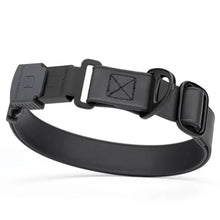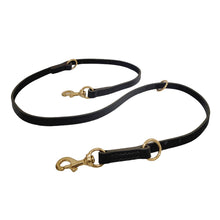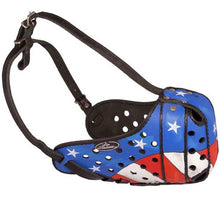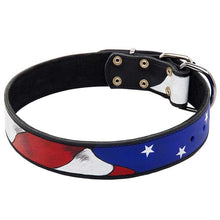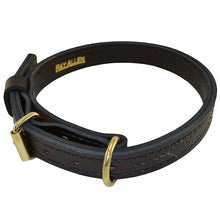Fall Fruits And Vegetables That Are Good For Dogs

Each fall a colorful bounty of fresh fruits and vegetables show up on grocery store shelves. Not only are these fresh foods healthy for us, many of them are great for dogs, too.
Fall produce begins in late September and is available through November. The colorful fruits and veggies all pack a nutritional punch that can easily be incorporated into your dog’s diet to help boost their immune system and overall health.

The easiest way to incorporate fruit and vegetables into your dog’s diet is to share unseasoned produce with your dog as you eat it throughout the week. Your dog will appreciate the variety added to his food dish and you can feel good about adding some foods that have many health benefits, such as:
- Immune system booster
- Supports the liver, gallbladder, heart, and kidneys
- Protects eye health
- Adds a variety of fresh nutrients to the diet
- Provides added moisture to dry kibble
- Good for the skin and coat
- Provides a variety of vitamins and minerals
- Antioxidant properties
- Aides in digestion
- May help protect from cancer, diabetes, and heart disease
As a rule of thumb, you don’t want to feed over 10% of your dog’s daily calories in vegetables and fruits. The higher sugar and starch in the produce, the less you should feed your pet. If you feed raw produce, it should be pulverized so they can absorb the nutrients. Otherwise, the food should be gently cooked.
Some fall produce that most dogs tend to enjoy include:
Apples
Fresh, crisp and sweet, apples are a tasty treat that is packed with fiber and vitamin C, vitamin A, potassium, and antioxidants. To feed your dog apples, just give one to two slices as too much apple can be high in sugar and also cause diarrhea. If your dog doesn’t like raw apple, you can treat your dog with a gently cooked apple or a tablespoon of natural apple sauce by itself or as a topper.

Beets
Beet can be found in some dog food but can also be fed by itself as a small treat. Beets contain immune system boosting vitamin C, fiber, manganese, folate, and potassium. Beets can be fed raw but should be pureed first or they will cause digestive upset. Beets are also tasty roasted and boiled and in that form, a small slice can be fed without pureeing. Keep in mind that beets do stain.

Butternut squash
Dogs tend to love squash and butternut is no exception. Butternut squash contains vitamin A, C, and B6, folate, potassium, magnesium, fiber, and phosphorus. It is said to be good for the heart, eyes, and immune system. Butternut squash is best roasted, when it is easy to digest

Carrots
Carrots offer a great crunch and dogs usually love them. They are low calories, high in fiber, and contain vitamin A, K, B6, potassium, and biotin. Carrots make a great chew but to absorb the most health benefits, they should be roasted, steamed, or gently boiled. Baby carrots are an easy and healthy treat and also cook fairly quickly.

Cranberries
When feeding your dog cranberries, you’ll want to do so in extreme moderation or they can cause bladder stones (ironically, since many people try feeding cranberry to help with bladder problems). Never feed cranberry sauce or other cranberry dishes that contain lots of sugar and potentially other ingredients that may be toxic (such as liquor, raisins or grapes, or grape juice). When feeding cranberries, try a fresh cooked berry to see how your dog likes it. Cranberries do contain vitamins and minerals but when feeding them to dogs, the quantity would be so small the benefit would be negligible. If you want to feed cranberry to help with bladder problems, you’ll want to talk to your vet about a good supplement form of the berry.

Pears
A slice of cool and crispy pear makes a great snack that is high in copper, vitamin C, K and fiber. Pears can also be fed stewed or when unsweetened and pureed. In humans, pears are known to reduce the risk of stroke.

Pumpkin
Pups love pumpkin and this yummy squash is often used as a digestive aid. However, pumpkin is more than a cure for constipation and diarrhea. Pumpkin is considered a super food that is rich in vitamins A, C, E, iron, and potassium. Pumpkin also contains natural prebiotics, which support the presence of good bacteria in the digestive tract. You can feed a spoonful of pureed, canned pumpkin, or roasted pumpkin.

Sweet potato
Sweet potatoes are low in fat while being rich in vitamins A, B6, C, calcium, potassium, and iron. They offer strong immune system support and make for a yummy treat. They are higher in calories than some vegetables so you’ll want to watch your pet’s serving size. The easiest way to feed them is baked with the skin off, to avoid digestive upset.

Zucchini
Zucchini is a great for dogs because it is low in fat and calories while being high in vitamin C, beta-carotene, and folate, the vitamins and minerals that support bones, muscles, nerves, vision, and immune system. It’s easy to feed, too. You can grate raw over their regular meal or share your steamed or sautéed squash with your dog.

Fall Foods to Avoid (not a complete list):
Avocados, toxic in high amounts
Grapes, toxic
Kale, can lead to kidney and bladder stones
Legumes, may cause nutrient absorption problems
Onions, toxic
Macadamia nuts, toxic
Green potato skins, toxic
Raisins, toxic






